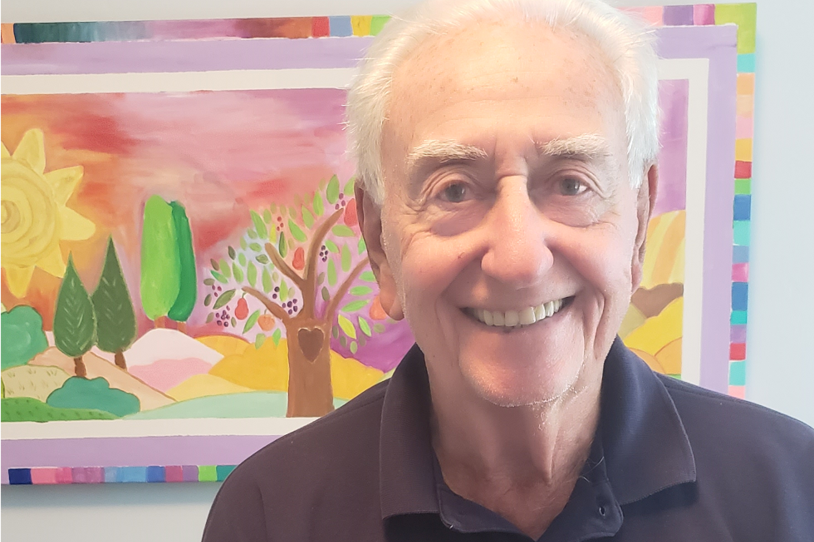
Jerry Pollack, 83, doesn’t have Parkinson’s, but his dad, brother and sister all did. A few years ago, when his niece told him that a research study was offering genetic testing for people of Ashkenazi Jewish descent, he jumped on the opportunity.
People of certain backgrounds, including those of Ashkenazi (Eastern European) Jewish descent, are more likely to carry genetic risk factors linked to Parkinson’s disease (PD). (Read about Parkinson’s genetics or watch a webinar.)
Jerry learned he had a LRRK2 mutation — the most common genetic mutation linked to PD. In addition to helping him understand his genetics, it made him eligible for The Michael J. Fox Foundation’s landmark Parkinson’s Progression Markers Initiative (PPMI) study. (Learn more about genetic testing.)
“I have a very personal interest in this disease, given my family’s history,” says Jerry, a retired manager of an energy company in Meridian, Idaho.
To honor that family history, Jerry has participated in PPMI at a medical center in Seattle, Washington, since around 2017. PPMI follows people — with and without PD — over time to learn more about how disease starts and changes. The data is securely shared with scientists to speed breakthroughs. Most people who join PPMI contribute data online. But Jerry, who joined in person, completes assessments and shares biological samples (e.g., saliva, blood) at a medical center twice a year.
“You just never know how the results of this study might influence future generations,” he says.
Not everyone with a LRRK2 mutation or family connection goes on to develop Parkinson’s, and PPMI is trying to understand why. Studying people with genetic and family links to PD helps researchers learn how and why disease starts, which helps them develop new, more personalized treatments and ways to prevent disease.
“I consider myself fortunate that I can participate and maybe be part of something that has a productive and positive outcome,” Jerry says. “As long as I can, I’m going to keep going.”
PPMI has a special need for parents, brothers and sisters, and children (over age 60) of people with Parkinson’s, especially those of Ashkenazi Jewish descent. The study is open to anyone over age 18 in the U.S. Join the study that could change everything.
Outside the U.S.? Medical centers in nine other countries are recruiting participants with certain connections to PD. View a list of sites.
Hear more from Jerry in our Third Thursdays Webinar, PPMI: The Study that Could Change Everything, available to watch on demand anytime.
